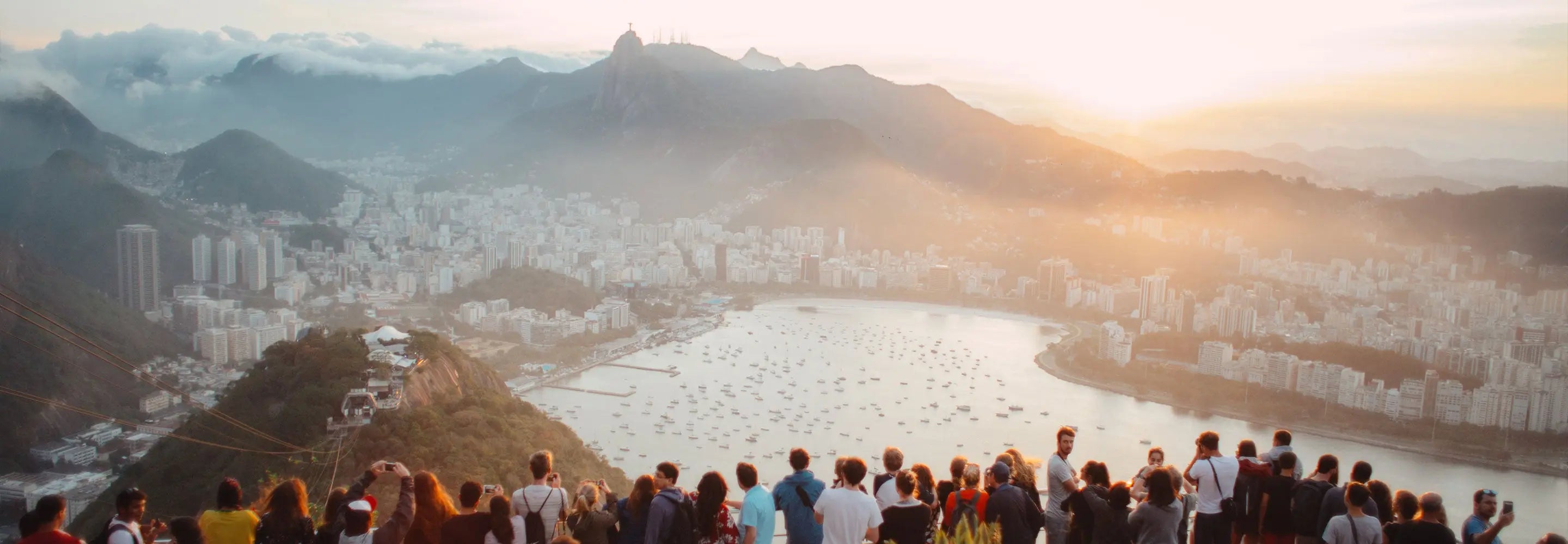People choose to travel for all kinds of reasons. Some are seeking relaxation, some are looking for adventure, and some are on a journey to learn more about the world and better themselves. The right trip can check off all three boxes!
In this increasingly interconnected world that we live in, visiting unfamiliar and faraway destinations is easier and more important than ever. So what does it mean to travel with the intention of learning?
What is cultural tourism?
Simply, it’s travel motivated by the desire to understand and experience other cultures.
Whether you are touring historical or religious sites, attending local festivals, enjoying art and music, or tasting local cuisine, you are taking part in this kind of tourism.
Travel can open our minds to different perspectives and give us a broader outlook on life and the world. Ultimately, a mindful approach to travel helps you become a well-rounded person.
But, as you learn about other places and cultures, it’s important to do so respectfully.
Why is it important to be a conscious traveler?
In many heavily-visited cities and countries, tourists (often Americans in particular) get a bad rap.
When you are mindful of your travel plans and respect the local communities and ecologies of your travel destinations, you are making the world a kinder place and creating a more authentic travel experience for yourself as a cultural tourist.
Showing the locals that you respect their culture and have the desire to learn will go a long way toward making your trip fulfilling. You can learn more by connecting with locals than you ever could from a paid tour guide. These connections and conversations open a window into the authentic culture of a place.
How can you show respect for local cultures while traveling?
Being respectful and authentic while out on your adventures just requires a desire to learn and a little self-awareness! The right preparation can help too. Here are our recommendations:
1. Do your research!

When you are planning your trip, the first step to cultural tourism is to do appropriate research.
Books and the internet are your best friends here. Read up on local customs, traditions, religions, and holidays. Learning the history of an area will give context to its cultural norms and makes it easier for you to connect with the people you meet.
Learning about the local attitudes towards tourism and tourists is also a good idea. If there is a popular tourist activity that the residents find harmful, offensive, or unsustainable, you will want to avoid it.
2. Learn some of the local languages.

You can’t assume that there will always be someone around who speaks your language. If the predominant language spoken at your destination is different from your own, it is helpful to at least learn a few phrases and words before your visit. Real cultural tourism requires the ability to make connections with people.
If you can at least greet the locals in their own language, it shows you are willing to learn more about their culture, even if your pronunciation isn’t perfect!
Just knowing the phrases for, “Hello,” “Goodbye,” and “Thank you!” can make a world of difference. It’s also a good idea to learn words for places and activities on your itinerary, and how to phrase questions ("Where is...," "What is...," etc).
3. Learn the dress code.

While you may come from a country where you are free to dress however you like, conscious travelers remember that some places have a more conservative outlook on fashion.
This is particularly important to keep in mind if you are visiting important cultural and religious sites. The climate where you are traveling to is a factor too. If you aren’t sure exactly what to pack, research how the locals usually dress as a starting point!
4. Avoid over-visited destinations.

In some places, tourism is a huge part of the local economy and is essential to maintaining the quality of life of its residents. In others, tourism has had a much more negative impact on the locals’ daily lives and even the ecosystem. When researching, try to find out the general opinion about tourism and tourists in that destination.
If your intended destination has been negatively affected by tourists, embodying cultural tourism may mean simply changing your travel plans altogether. But if it’s one of your most precious bucket list destinations, there are a few ways you can make your time as a cultural tourist less harmful.
You can plan your trip for the off-season so you don’t contribute as much to overcrowding. You can also try to support local businesses as much as you can while you are there. Local stores, restaurants, tour guides, and more are great options for supporting the local economy while you are living your travel dreams.
5. Recognize your own biases.

When traveling somewhere completely new among a different culture, being open-minded is not optional.
Real cultural tourism means that to fully experience and appreciate the place and local culture, you must leave your own cultural views and ideas at home and look with fresh eyes.
While you must acknowledge the ways the culture is different from yours, you can also reflect on similarities. After all, no matter where we live, we are all humans experiencing the same beautiful planet at the same time, and there is something remarkable about that.
Now that you know how to prepare for your trip as a cultural tourist, are you ready to make conscious travel a priority? We can all do our part to make the world a more open-minded, accepting, and welcoming place for everyone!









Share:
5 Easy Fall Camping Recipes for Your Family
The Benefits of Travel - Lessons from the Road